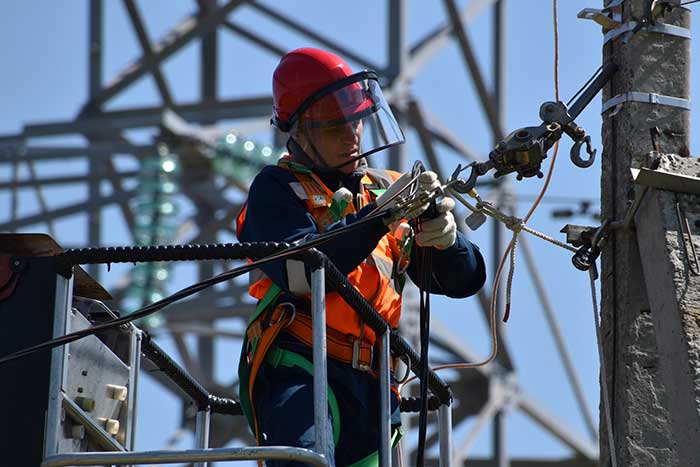If you’re about to start your career, or if you’re ready to switch to a new career, you might consider becoming an electrician. As an electrician, you’ll have many possible career paths to develop yourself along, and you’ll make good money doing it – but there are also some risks and challenges you need to be aware of.


@adamanium
The Risks and Challenges of Becoming an Electrician
Let’s start with the bad news. There are some risks and key challenges associated with a career in electrical work you need to be prepared for, such as:
- Risk of injury and death. The most important drawback to understand is that working with electricity can be dangerous. You’ll be working with high-voltage wires on a nearly constant basis – and all it takes is one mistake to leave you with a serious injury or even death. Modern electrical work demands adherence to a strict set of safety guidelines; if you follow these guidelines, you have nothing to worry about. And if a member of your team breaks any of these guidelines, they’ll face serious consequences. Still, all it takes is one error to put your life in danger.
- Precision measurements. While working as an electrician, you’ll be responsible for carefully measuring wires and following strict protocols when installing new systems or repairing existing ones. If your work is off even slightly, it could jeopardize the functionality of the entire system – or even put yourself in danger. This can be intimidating for newcomers, but with a bit of experience, you can overcome it.
- Manual labor. Some people like the idea of having a cushy office job, where you can sit in a comfortable office and work at a computer all day. But being an electrician is a tough, physical job in many cases. For some people, this is actually an advantage, but for others, it’s a major turn-off.
The Benefits of Becoming an Electrician
Now let’s look at the benefits of becoming an electrician, which often far outweighs the drawbacks:
- High pay. Your salary will vary depending on lot of factors, including where you live, your exact job, and how much experience you have. But generally speaking, electricians are paid well. As a newcomer, you’ll stand to make between $15 and $39 per hour, and as a master electrician, you can make $80,000 per year or more. Throughout your career, you’ll have many opportunities to expand your skill set, take on new responsibilities, and ultimately earn more money.
- High demand. Electricity is a vital component of the modern world, so we’re going to need professionals to work with it indefinitely. Electricians are already in high demand, and the industry is continuing to grow. If you start your career as an electrician now, there’s a good chance you’ll have jobs lined up for you for the rest of your life.
- Mental stimulation. For many people, working as an electrician is mentally stimulating. You’ll have the opportunity to creatively solve tough mechanical problems. You’ll be working with your hands and thinking about possible solutions. You’ll be working in new environments on a regular basis, and sometimes coordinating with a team. Depending on your job, you may have to spend a few hours a week filling out paperwork or carrying out other mundane tasks, but the majority of your workday will be occupied with interesting challenges and new situations. It’s a lot better than a typical “9 to 5” job in this regard.
- Accessible education. Some new electricians are turned onto the field because of its accessible education. You’ll have to attend a technical school or trade school to get the education required to begin your career as an electrician; depending on your program, you can often finish in a year or less. Tuition is relatively affordable, meaning you won’t have to take on massive amounts of debt to get the education you need. Once you’re finished with schooling, you’ll enter into an apprenticeship, where you’ll gain more knowledge and experience by working in a live environment.
- A variety of career options. There are many potential career paths available for electricians, meaning you’re never going to be stuck doing just one thing. Depending on your goals, you could develop yourself as a house wirer, a lineman electrician, a construction electrician, or even something more uncommon, like a solar photovoltaic electrician. You can even choose to start your own business.
Being an electrician isn’t the right career move for everyone. For some, it’s too risky. For others, it’s just not interesting. But if you find the idea of working with electrical wiring and complex electrical systems to be interesting, and you love all the advantages it has to offer, consider enrolling in a course to get you started with the fundamentals.
